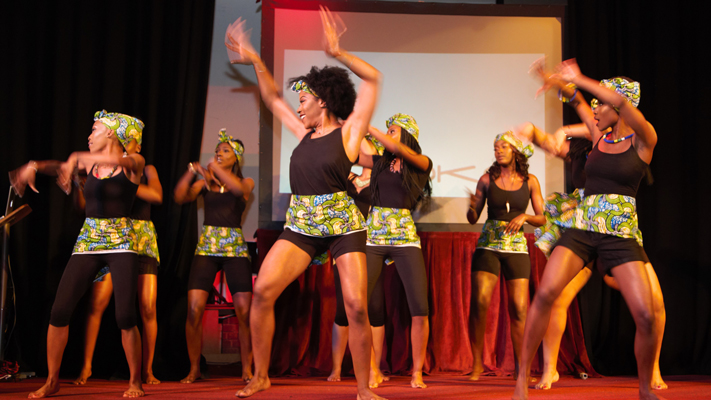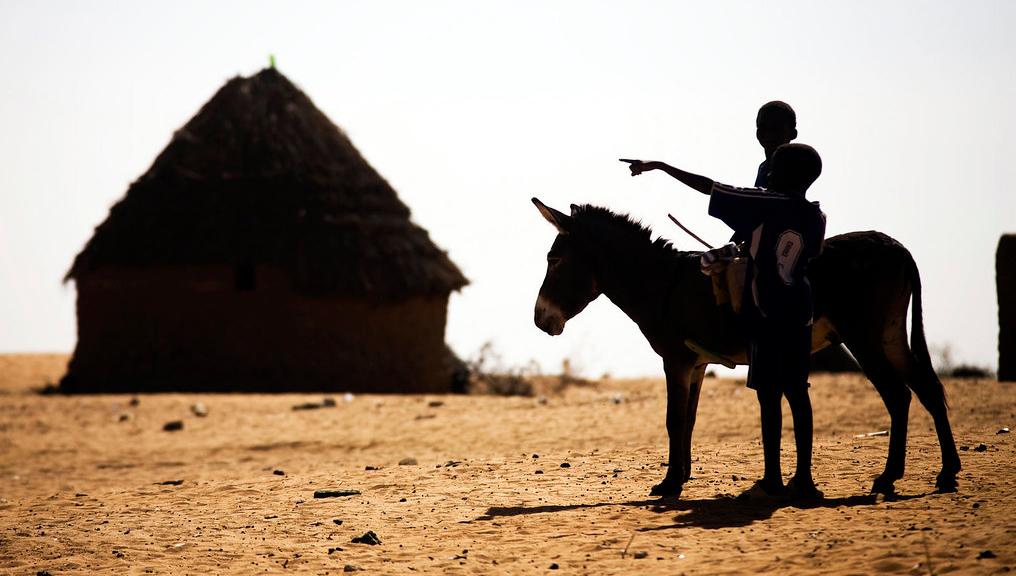Storytelling is not necessarily verbal or literary but can be powerfully inscribed upon the body. For young people belonging to Black African minority groups, body practices can have the power to trace migratory and everyday experiences. Benedetta Morsiani explores the body performances of the London Congolese, where fashion and beauty spectacles entangle with the politics of everyday life.
Scholars working on the Black African diaspora have emphasised the centrality of cultural performances in shaping and authenticating racial, ethnic and gender identitarian experiences. Expressions of the body are part of these practices and can be seen as forces in the creation of new contemporary identities and places of belonging in everyday cultural life.
Terence Turner defines the body as a social canvas, ‘the symbolic stage upon which the drama of socialisation is enacted’. According to Carol Tulloch, the use of fashion style represents a recurring theme for Black people in Britain and the African diaspora more generally. The love of fashion, and its related performative dimension, has historically functioned as a source of dignity, legitimacy and respectability in presenting a sense of self in public spaces. In Tulloch’s words: ‘the obsession with dressing well is almost part of the DNA in the Black community’.
Adorning the body has long been a celebrated aspect of daily cultural life in the Democratic Republic of Congo (DRC) and its diasporic groups. Bodily practices have developed as fundamental signifiers since the era predating colonialism, offering insights into individuals’ place within society and their proximity to power. It is not surprising, therefore, that fashion and beauty rituals remain an immensely important medium employed by a large section of young London Congolese to define and present themselves in front of others, to embody their racial, ethnic, gender and transnational identities.
While exploring postcolonial identities of Congolese heritage, I keep in mind Stuart Hall’s thinking on cultural identity, which goes beyond static notions of race, ethnicity and gender to see identity formation as a production that is ‘always in process’, always constituted within, and never outside of, representations. Cultural identities in everyday life are understood as ‘performative’, which means that they are constructed by actions, by ‘performances’, rather than related to nature and biology.
Compared to other notable places of settlement for Congolese diasporas in Europe, such as Brussels and Paris, the city of London is distinguished. From a political point of view, the London Congolese have been recognised as the European focal group for political resistance and common concerns on the DRC’s political and economic disorder. From a socio-cultural and economic point of view, London figures among the young community as quite an open and accessible place for personal and collective growth. London’s context is perceived by many young Congolese as less racist and offering more professional opportunities. This multicultural and ‘superdiverse’ matrix of the city, involving a constant flow of people, discourses and cultural forms, is certainly influencing migrants’ ways of living and producing their diaspora spaces.
In creating and consuming fashion garments, catwalks and beauty pageants, which have many ‘original’ elements of their cultural heritage, young London Congolese strive to record and celebrate a sense of cultural ‘authenticity’. They manifest diasporic memories and a strong transnational and ‘imaginary’ attachment to the DRC, in the context of being forced from their homeland and to experience a process of displacement. At the same time, fashion and beauty diaspora spaces portray a continuous transformation of fluid and multiple identities. The London metropolis’s global settings are inspiring a combination of ‘hybrid’ points of view and injections of ‘non-traditional’ elements. Consequently, cultural identities are influenced by and formed through collaboration and interconnection, not only between individuals with a similar heritage but also, and especially, between individuals who do not belong to the same ethnic and racial group and do not specifically share the same traditions.
Importantly, young London Congolese on and off stage are more than actors performing a ritual of shared ‘hybrid’ cultural identity. Their fashion and beauty spectacles are also very much entangled with the economics and politics of everyday life. On the one hand, body rituals could be classified as a type of cultural business focused on shaping an economic progression of the Congolese community in the city, and on investing in an improvement in the homeland. On the other hand, young London Congolese employ fashion and beauty performances as forms of political resistance where norms, inequalities and stereotypes are contested.
The diasporic beauty pageant of the Miss Congo Beauty Pageant UK, which takes place every year among the community, can be taken as an example. Instead of figuring as a spectacle pursuing women’s oppression, the ritual performance stands as a significant site of identity production, cultural agency and political intervention. Along with encapsulating cultural representations through which ‘traditional’ Congolese values and norms are re-produced, the Miss Congo scenario is used as a platform by the younger generation to tackle openly controversial issues affecting their own group and, more broadly, Black African diasporas. Among these are gender violence, inequality and the under-discussed issue of the HIV virus and its attached widespread stigma. Furthermore, the spectacle is also deployed to encourage Afro-diasporic alternatives to Euro-Western beauty and body standards, disseminating African aesthetics, notions of Black beauty and the ‘natural’ body, and potentially becoming a tool to overcome the Western systems of cultural representation.

Through this and other forms of body rituals, young London Congolese reveal what it means to belong to a minority group in a global city, while addressing issues of power, voice and visibility. Performances of the body serve for the youth to produce and distribute ideas about their own community and culture, often challenging what has been passed onto them by their parents’ generation while advocating progress within the diaspora itself. They dramatise and witness their own history-making, constructing their own definition of themselves, their own understanding of their past, present and future.
The stage of the Miss Congo performance thus stands meaningfully as cultural, economic and political arena, where the embodiment of Black ‘feminist’ values and ‘feminine’ styles are entangled. It provides an avenue to mark a contemporary ‘identity tale’, a new cultural imaginary of ‘Black-ness’ and ‘Congolese-ness’ of both the actors and the observers.
This post is based on Benedetta Morsiani’s PhD thesis exploring fashion and beauty practices among young London Congolese.
Main photo credit: George Ack





